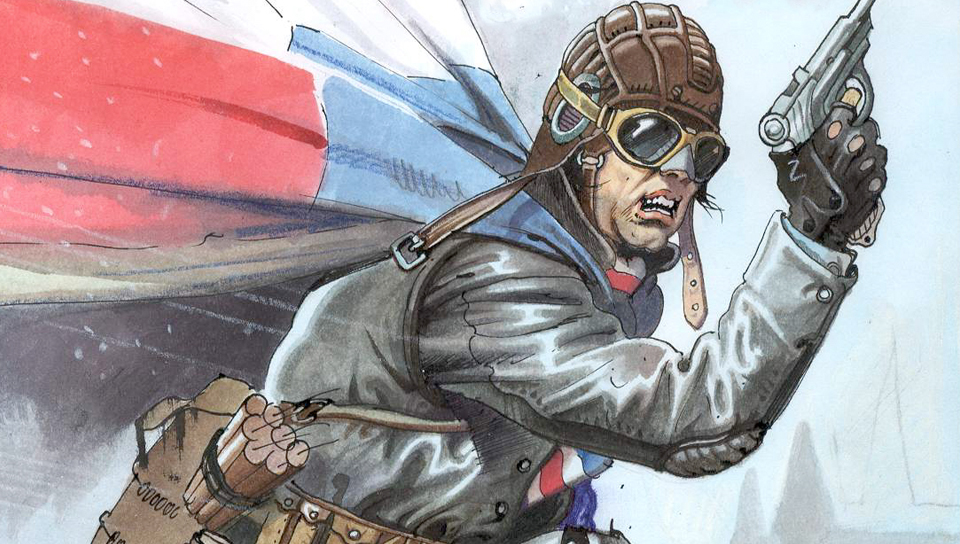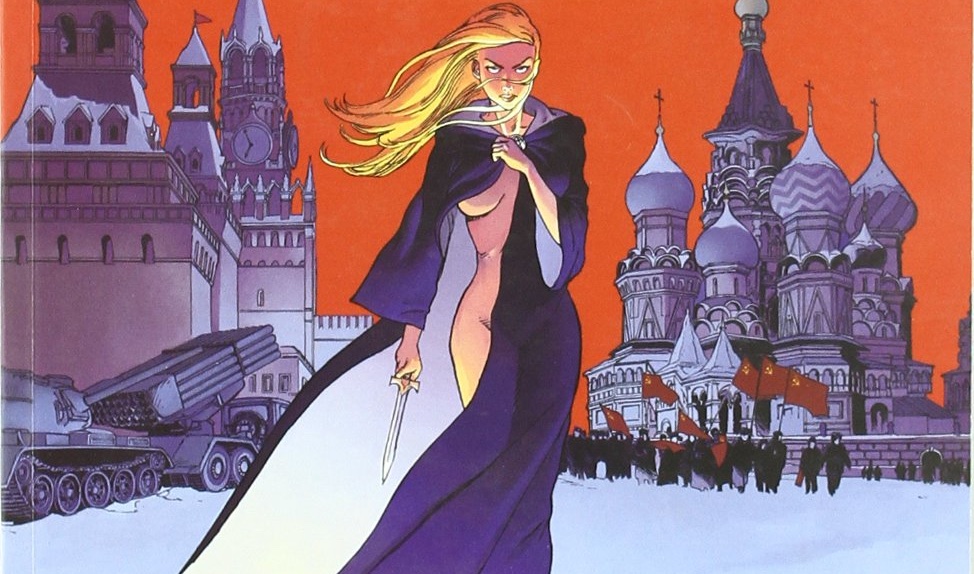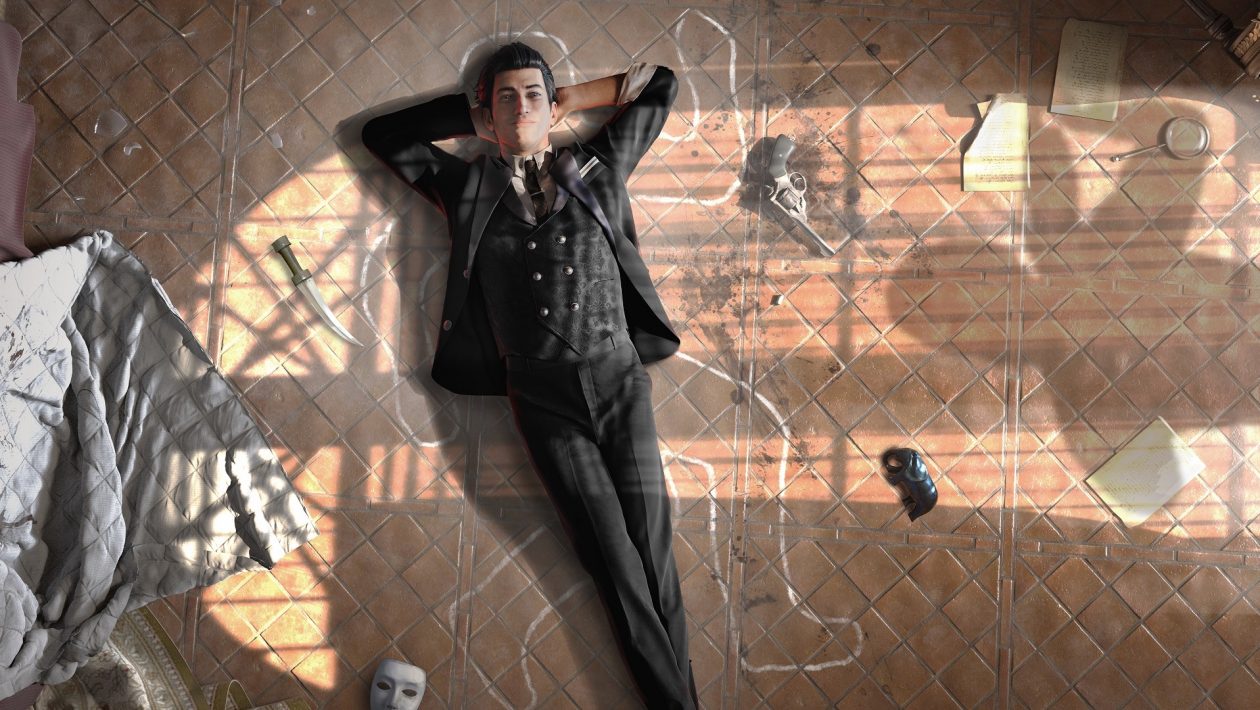Assassin’s Creed from Prague, first part -apkrig
In 2013, I wrote an article in which I reflected on which countries and at what times the developers of the Assassin’s Creed saga, or we players, could go to other works through these titles. After all, fans are constantly speculating about other destinations. After a few years, we can state with satisfaction that many of our wishes have been fulfilled since then. We looked to revolutionary Paris, Victorian London, ancient Egypt and Greece, and through Chronicles also to China, India and Russia. Last year, Ghost of Tsushima from Sucker Punch Productions made up for the missing Japanese adventure.
Certainly not all of our wishes came true. There was no return to Persia through a merger with the Prince, the First or Second World War, or ancient Rome. Dealing with other potential goals for years is like spinning a globe and a clock on a time machine. Developers can go anytime, anywhere. And that’s why I decided to fantasize more this time. I’m not concerned with whether it makes sense on the part of Ubisoft, and I’m not bothered by the question of how real it is. I just want to dream, so I decided to outline three hypothetical Assassin’s adventures that would take us home. Of course, still with regard to the given topic being sufficiently attractive and at the same time the events could be connected in some interesting way with the world of video games. And yes, it’s such a cliché that Assassin’s Creed usually devotes some crucial historical moment or period, which is something I won’t break. On the other hand, although the text repeatedly mentions Prague, due to the growing area of maps from this saga, a fictitious title would not necessarily take place by far only in the Czech capital.
Rudolfinum Prague (end of the 16th century)
The legend of the Prague golem is surprisingly quite popular abroad. He’s probably the most famous golem of all. This artificial being was built according to legend Rabbi Löw, and in a video game it could be shown that this quite possibly happened according to the instructions of the first civilization. Another fantastic piece of technology that interferes unpredictably in the lives of ordinary people. The Jewish scholar could play a similar role in the story as Leonardo da Vinci and many other researchers and scientists we met in Assassin and who gave a helping hand to the protagonists. Through the rabbi, of course, you would get to the emperor himself. Rudolf II. he was known for his passion for alchemy, he supported science and art, and his court was crowded with personalities from all over Europe. Meeting greats like Tycho Brahe, Johannes Kepler, Edward Kelley or John Dee could be among the highlights of the game. But who should be the protagonist of Assassin’s Creed: Golem? Baker Matěj, perhaps not preferred by Jan Werich, would rather not. So what about the golem itself? In fact, perhaps only a man of flesh and blood who, in the end, would accept the identity of a dysfunctional artificial being lying motionless in the attic of the Old-New Synagogue. Perhaps in an effort to protect the Jewish ghetto from Christian attacks. The whole thing would just be such a complicated mess.
Protectorate of Bohemia and Moravia (1939-1945)
Assassin from World War II wants a number of fans from the first episodes, and at least The Saboteur from the 2009 Pandemic studio has shown that it works. More than a decade has passed since its release, so the field is free, while fans used to believe that World War II was taboo for Ubisoft due to competition. Moreover, occupied Paris is not that far from Prague. The main character would, of course, be the legendary Perak, who would fight the German occupiers with springs on their feet. This would expand the gadget’s repertoire with a new effective weapon. Who needs to climb houses, ride ropes or use an anchor when they can jump over roofs in a single leap? In addition to the mysterious stunning stick that Perak allegedly used, he would wear a mask with glowing red eyes. Perak would help paratroopers, punish collaborators and liquidate especially evil Nazis, who would of course serve the interests of the Templars. And he wouldn’t go to a movie theater for UFA studios. Maybe we would finally know if he was an inventor or a circus artist before the war. The player would have his fingers in all important actions of the resistance, from the assassination of the deputy imperial protector Heydrich to the Chlebíček affair. Perak would help the inhabitants of the protectorate and, in addition to the occupiers, also fought with other bizarre villains, such as the Razor, who attacked women, the Canal, who stole the lids from the canal, or the Coal, robbing coal supplies. Yes, it would be a bit of a comedy. And at the same time a tragedy. So like our history in a nutshell.

Prague Spring (1968)
Although I myself perceived Assassin for many years as a purely historical substance that should not interfere much in modern history, over time I have reconsidered this view. After all, it is my game, and it can therefore be one that bravely bites into the second half of the 20th century and crushes established conventions with the force of Leonid Brezhnev’s fist. Since we don’t get Cold War spy thrillers, I need to take matters into my own hands. At the turn of 1967 and 1968, socialist Czechoslovakia would become another hotbed of tug-of-war between the West and the East. In a world divided by the Iron Curtain, the main characters (yes, there would be two) would arrive in the heart of Europe from abroad in order to weigh the scales on one side or the other. Although the very period of political relaxation and socialism with a human face was sufficiently dramatic and vigorously cut off by the invasion of Warsaw Pact troops, the real drama would take place in the background in the fictional story of two agents pulling strings in the background. On the one hand, he would be an ambassador of the West with sharply cut features, perhaps a former Czechoslovak pilot who had previously emigrated to Great Britain. Now, in his home country, he is trying to indirectly force Dubček and other political leaders to free the Prague satellite from the influence of the Kremlin. On the contrary, a Soviet KGB agent would stand against him, urging Indra, Biľak and other prominent people not to be lazy and to write a letter, for example. Let’s call it an invitation. Who would be the assassin and who would be the Templar, I will leave it to you, but at the end of the final titles, one eye would not remain dry. After all, if Assassin can be about revolution as a troika and Unity, why can’t he be about counter-revolution…

Like I heard you. So many other historical figures and events remained untapped. What the time of Joseph II. and Mozart as a sequel to Unity? The First World War and the founding of Czechoslovakia? Or why not go deeper into history? Jan Žižka, Jan Hus, Charles IV., Wenceslas III., The assassination of the Slavník family or the direct arrival of Cyril and Methodius? These are just a few tips that are directly offered. There would undoubtedly be many more ideas. Maybe it’s your turn to come up with your ideas. I can’t invent everything myself. From the beginning, I didn’t have the ambition to cover everything from A to Z, but to try to record for you to take the initiative and write your own concept in a similar spirit, for example in the comments, calmly crazy in the style of Indiana Jones. If you get enough feedback, I would be very happy to publish it later.


